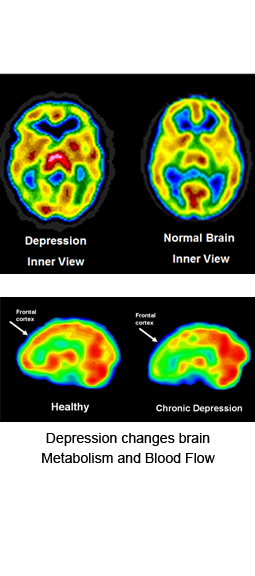
Key facts
- Depression is a common mental disorder. Globally, more than 350 million people of all ages suffer from depression.
- More women are affected by depression than men.
- At its worst, depression can lead to suicide.
- There are effective treatments for depression.
Depression is a common illness worldwide, with an estimated 350 million people affected. Differencing from usual mood fluctuations and short-lived emotional responses to challenges in everyday life, long-lasting moderate or severe intensive depression may become a serious health condition. It can cause the affected person to suffer greatly and function poorly at work, school and disrupt their family life. At its worst, depression can regrettably lead to suicide. Suicide results in an estimated 1 million deaths each year.
Even though there are known, effective treatments for depression, fewer than half of those affected in the world (in some countries, fewer than 10%) receive such treatments. The barrier of effective care is due to a lack of resources, lack of trained health care providers, and social stigma associated with these mental disorders. Another barrier to effective care is inaccurate assessment by health care providers. People who suffer with depression are not always correctly diagnosed, and others who do not have the disorder are occasionally misdiagnosed and prescribed antidepressants.
Hope In light of the above, Brain SPECT imaging has helped physicians diagnosing and treating depressive disorder. The SPECT scan can identify the parts of the brain that are generally believed to be involved in depressive disorder and determined whether they are working properly. Having this information, physicians can correlate the patient’s clinical symptoms and arrive at a diagnosis that is supported by objective evidence.
We are here to help. Our staff and physicians are here to help you feel better. We believe that we can offer additional strategies for understanding your brain’s current functioning through the use of SPECT imaging–a functional brain imaging modality. If you have questions and would like to learn more or schedule an appointment contact us at 1-800-315-5739.

